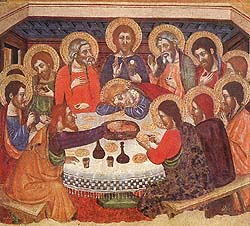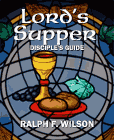Free E-Mail
Bible Studies
Beginning the Journey (for new Christians). en Español
Old Testament
Abraham
Jacob
Moses
Joshua
Gideon
David, Life of
Elijah
Psalms
Solomon
Songs of Ascent (Ps 120-135)
Isaiah
Advent/Messianic Scriptures
Daniel
Rebuild & Renew: Post-Exilic Books
Gospels
Christmas Incarnation
(Mt, Lk)
Sermon on the Mount
(Mt 5-7)
Mark
Luke's
Gospel
John's Gospel
7 Last Words of Christ
Parables
Jesus and the Kingdom
Resurrection
Apostle Peter
Acts
The Early Church
(Acts 1-12)
Apostle Paul
(Acts 12-28)
Paul's Epistles
Christ Powered Life (Rom 5-8)
1 Corinthians
2 Corinthians
Galatians
Ephesians
Vision for Church
(Eph)
Philippians
Colossians,
Philemon
1
& 2 Thessalonians
1 & 2 Timothy,
Titus
General Epistles
Hebrews
James
1 Peter
2 Peter, Jude
1, 2, and 3 John
Revelation
Revelation
Conquering Lamb of Revelation
Topical
Glorious Kingdom, The
Grace
Great Prayers
Holy Spirit, Disciple's Guide
Humility
Lamb of God
Listening for God's Voice
Lord's Supper
Names of God
Names of Jesus
Christian Art
About Us
Podcasts
Contact Us
Dr. Wilson's Books
Donations
Watercolors
Sitemap
3. Being Sharers in the Sacrifice (1 Corinthians 10:16, 18)
https://www.jesuswalk.com/lords-supper/3_communion.htm
Audio (11:18)
https://www.jesuswalk.com/mp3files/lords-supper/3_communion.mp3
 Jaume Serra, "The Last Supper" (1370-1400), Tempera on wood, Museo Nazionale, Palermo Larger image. |
14Therefore, my dear friends, flee from idolatry. 15I speak to sensible people; judge for yourselves what I say. 16Is not the cup of thanksgiving for which we give thanks a participation in the blood of Christ? And is not the bread that we break a participation in the body of Christ? 17Because there is one loaf, we, who are many, are one body, for we all partake of the one loaf.
18Consider the people of Israel: Do not those who eat the sacrifices participate in the altar? 19Do I mean then that a sacrifice offered to an idol is anything, or that an idol is anything? 20No, but the sacrifices of pagans are offered to demons, not to God, and I do not want you to be participants with demons. 21You cannot drink the cup of the Lord and the cup of demons too; you cannot have a part in both the Lord's table and the table of demons. 22Are we trying to arouse the Lord's jealousy? Are we stronger than he? (1 Corinthians 10:16-22)
Those who dismiss the elements of the Lord's Supper as "mere symbols" haven't reckoned with this important passage in Paul's Letter to the Corinthians. Church members were tempted to participate in sacrifices to various Greek and Roman gods. Paul argues that take part in such a sacrifice is to become sharers -- closely identified -- with those sacrificed to, in this case demons that are the spiritual reality behind these false gods.
|
Q1. Why was Paul exhorting the Corinthians about the cup of the Lord and the cup of demons? What was going on in the church? What was the danger to the believers?
|
As we study Paul's argument, we see a startling truth about the Lord's Supper.
Participation, Communion, Koinōnia (1 Corinthians 10:16)
"Is not the cup of thanksgiving for which we give thanks a participation in the blood of Christ? And is not the bread that we break a participation in the body of Christ?" (1 Corinthians 10:16)
One word stands out because it is repeated again and again -- the Greek word koinōnia, "participation" (NIV), also translated as "communion" (KJV) or "sharing" (NRSV). It means sharing something in common with others. The root koinē means common in contrast to private or sacred -- common ground, common pastureland, communal property, a couple's community property. When it refers to people it means "participants, fellows." The idea is that which is shared in common with others.1
Paul uses this word koinōnia to describe the believer's relationship to the blood of Christ and to the body of Christ -- that is, the sacrifice of Christ for us. We are sharers in the sacrifice of Christ for us; how can we also share in pagan sacrifices? That is Paul's argument here.
But it is worthy of meditation to consider yourself as having a share in, or perhaps a claim upon, the blood of Christ shed for you and for all your Christian brothers and sisters. You are a shareholder in the cross. In a sense, you are a participant and sharer in this sacrifice made for you. Dwell on that and it will touch you to the center of your soul.
|
Q2. What does koinōnia mean? What does it mean to "participate" or "share" in the blood of Christ?
|
Eating a Portion of the Sacrifice for Sin
Now Paul gives an illustration of his point from the sacrificial practice of the Old Testament priesthood.
"Consider the people of Israel: Do not those who eat the sacrifices participate (koinōnos) in the altar3?" (1 Corinthians 10:18)
The noun koinōnos is used in verse 18 to mean, "one who takes part in something with someone, companion, partner, sharer."2 Paul is referring here to the practice of the priesthood to eat a portion of the sacrifices brought to the tabernacle or temple. A portion was eaten by the priests and a portion was burned on the altar.4 In the case of a fellowship offering, a portion was also eaten by the offerer and his family.
The meat from sacrifices, along with the tithe, provided food for the priests and their families (Leviticus 10:12-15). But the priests' eating of the sacrifice was more than for food, as we see from the incident when Aaron's sons Nadab and Abihu were slain by God for making unrighteous offerings. Aaron and his remaining sons Eleazar and Ithamar were in deep mourning and neglected to eat the sin offering, as was required by the Law (Leviticus 6:26). When Moses found out he was angry:
"Why didn't you eat the sin offering in the sanctuary area? It is most holy; it was given to you to take away the guilt of the community by making atonement for them before the LORD." (Leviticus 10:17)
In other words, not only the offering of the goat by fire, but also the eating of a portion by the priests, was part of the atonement process.
Sharers in the Altar (1 Corinthians 10:18)
Now that we've studied the role of the priests in the sacrifice, we can see the point Paul is making. Look again at Paul's statement:
"Consider the people of Israel: Do not those who eat the sacrifices participate (koinōnos) in the altar?" (1 Corinthians 10:18)
Just as the priests were sharers in the sacrifice made on the altar of burnt offering,3 Paul is saying that you and I, as we eat of the Lord's Supper, become sharers in the offering of Christ on the cross for our sins.
This is a very profound thought indeed! If this is too mystical for your logical, rational brain, give it time. Meditate upon this passage and its reference to Old Testament sacrifice.
|
Q3. In what way did the priests participate in the altar by eating of the Old Testament sacrifices? How does Paul connect this observation with our participation with Christ's sacrifice?
|
Sharers in the Cross
There is a sense that as we partake of the Lord's Supper we become participants in the Christian altar of sacrifice -- the cross. When we partake, we connect with the sacrifice and become sharers in it -- in Him -- in Christ's sacrifice for us.
During the Reformation, people argued about whether or not the Real Presence was in the sacrament. Whether or not that is the case, there is a Real Connection to Christ and his sacrifice in the Lord's Supper.
Yes, the Lord's Table is a memorial meal that looks back to Christ's sacrifice. But it is more. It is a meal that connects us now to Christ's sacrifice. We become participants, sharers, in a sense.
Communion
This is one reason that the Lord's Supper is called "communion" in the KJV. This word describes the real but mystical connection that the Lord's Supper provides between us and Christ. In eating and drinking we can "commune" with him and he with us.
When I partake I become afresh a sharer in Christ's sacrifice. I indicate my stake, my share, in the sacrifice by eating of the symbolic portion in the Lord's Supper.
This is not just an outward form, but a symbol with great power in it connecting you and me directly to Christ's sacrifice for our sins.
|
Q4. What are the implications for you personally, when you realize that in the Lord's Supper you are becoming a sharer in the sacrifice of the cross? How does that affect you? How does it change your understanding of the Lord's Supper?
|
Prayer
 Available as e-book and paperback. |
Father, teach us what it means to have communion with Christ and his sacrifice for our sins. Open to us a door to fuller communion with You and your Son through the Holy Spirit. We long to draw closer to you and feel your presence. We long to know you better. Open our understanding. In Jesus' holy name, we pray. Amen.
References
Common abbreviations and references. www.jesuswalk.com/lords-supper/refs.htm
- Friedrich Hauck, "koinonos, ktl.," TDNT 3:789-809. BDAG 553 sees verse 16 as meaning: "Do not the cup and the bread mean the common partaking of the body and blood of Christ? After all, we partake of one and the same bread."
- Koinōnos BDAG 553-554.
- Thusiastērion , "altar" is "a structure on which observances are carried out, including especially sacrifices, altar," specifically here the altar of burnt offering in the courtyard of the temple or tabernacle (BDAG 463).
- Fee, 1 Corinthians, p. 471, disagrees. He sees the reference to people sharing in the sacrifical meal in Deuteronomy 14:22-27, not the priest's share. I see the emphasis on the altar requiring this to be the priests' meal. Fee says, Paul can only mean by "sharers in the altar," that the participants shared together in the food on the altar.
Copyright © 2025, Ralph F. Wilson. <pastor![]() joyfulheart.com> All rights reserved. A single copy of this article is free. Do not put this on a website. See legal, copyright, and reprint information.
joyfulheart.com> All rights reserved. A single copy of this article is free. Do not put this on a website. See legal, copyright, and reprint information.
 |

|
In-depth Bible study books
You can purchase one of Dr. Wilson's complete Bible studies in PDF, Kindle, or paperback format -- currently 48 books in the JesusWalk Bible Study Series.
Old Testament
- Abraham, Faith of
- Jacob, Life of
- Moses the Reluctant Leader
- Joshua
- Gideon
- David, Life of
- Elijah
- Psalms
- Solomon
- Songs of Ascent (Psalms 120-134)
- Isaiah
- 28 Advent Scriptures (Messianic)
- Daniel
- Rebuild & Renew: Post-Exilic Books
Gospels
- Christmas Incarnation (Mt, Lk)
- Sermon on the Mount (Mt 5-7)
- Luke's Gospel
- John's Gospel
- Seven Last Words of Christ
- Parables
- Jesus and the Kingdom of God
- Resurrection and Easter Faith
- Apostle Peter
Acts
Pauline Epistles
- Romans 5-8 (Christ-Powered Life)
- 1 Corinthians
- 2 Corinthians
- Galatians
- Ephesians
- Philippians
- Colossians, Philemon
- 1 & 2 Thessalonians
- 1 &2 Timothy, Titus
General Epistles
Revelation
Topical

 To be notified about future articles, stories, and Bible studies, why don't you subscribe to our free newsletter, The Joyful Heart, by placing your e-mail address in the box below. We respect your
To be notified about future articles, stories, and Bible studies, why don't you subscribe to our free newsletter, The Joyful Heart, by placing your e-mail address in the box below. We respect your